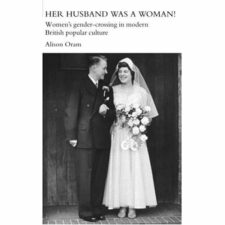In 1774, the Scot Janet Schaw went on a trip to the Caribbean. She wrote this letter home to her family while in Antigua.
Last Saturday was Christmass which we had engaged to pass with Mr Halliday, but our good old hostess Mrs Dunbar had begged so hard that we would pay her a visit, that we took the opportunity of every body being at their devotions to go to her, as her house did not admit of retirement. The old Lady was charmed to see us and we had reason to thank her for Memboe [a servant], who had been most exact in her duty. … We found Mary had been often ashore, but gave herself no trouble about us. Indeed we had no occasion for her attendance, as Memboe, the black wench, performed her duty in every respect to our satisfaction. Every body who did not attend the service at Church were gone out of town. My brother was not yet returned from his Tour, so we had that night entirely to ourselves. Next morning atoned for this, as every body was with us, and we were carried by Mr Halliday and Mr Martin up to a fine plantation, which belongs to the former. We went out of town pretty early, as Mrs Dunbar with several other Ladies were to meet us.
We met the Negroes in joyful troops on the way to town with their Merchandize. It was one of the most beautiful sights I ever saw. They were universally clad in white Muslin: the men in loose drawers and waistcoats, the women in jackets and petticoats; the men wore black caps, the women had handkerchiefs of gauze or silk, which they wore in the fashion of turbans. Both men and women carried neat white wicker-baskets on their heads, which they ballanced as our Milk maids do their pails. These contained the various articles for Market, in one a little kid raised its head from amongst flowers of every hue, which were thrown over to guard it from the heat; here a lamb, there a Turkey or a pig, all covered up in the same elegant manner, While others had their baskets filled with fruit, pine-apples reared over each other; Grapes dangling over the loaded basket; oranges, Shaddacks, water lemons, pomegranates, granadillas, with twenty others, whose names I forget. They marched in a sort of regular order, and gave the agreeable idea of a set of devotees going to sacrifice to their Indian Gods, while the sacrifice offered just now to the Christian God is, at this Season of all others the most proper, and I may say boldly, the most agreeable, for it is a mercy to the creatures of the God of mercy. At this Season the crack of the inhuman whip must not be heard, and for some days, it is an universal Jubilee; nothing but joy and pleasantry to be seen or heard, while every Negro infant can tell you, that he owes this happiness to the good Buccara God, that he be no hard Master, but loves a good black man as well as a Buccara man, and that Master will die bad death, if he hurt poor Negro in his good day.
Taken from Janet Schaw, Journal of a Lady of Quality: Being the Narrative of a Journey from Scotland to the West Indies, North Carolina, and Portugal.
By 1774, Scots were well-established slave-owners in the Caribbean Islands, yet Schaw’s letters show the changing attitudes of the period as she praised the owner who had ‘freed’ his slaves and now employed them as ‘servants’. Katie Barclay is a historian at Queen’s University, Belfast.

